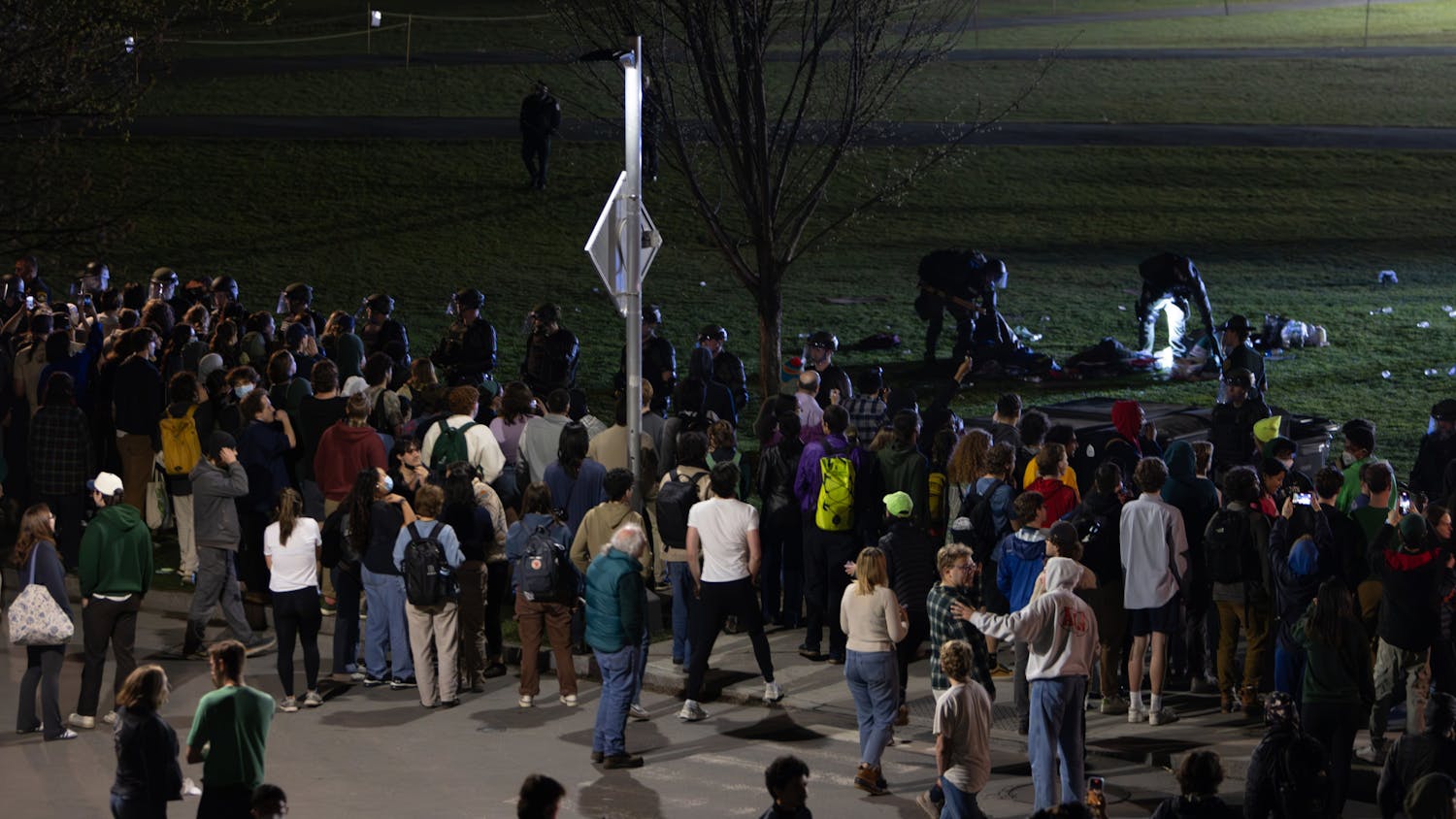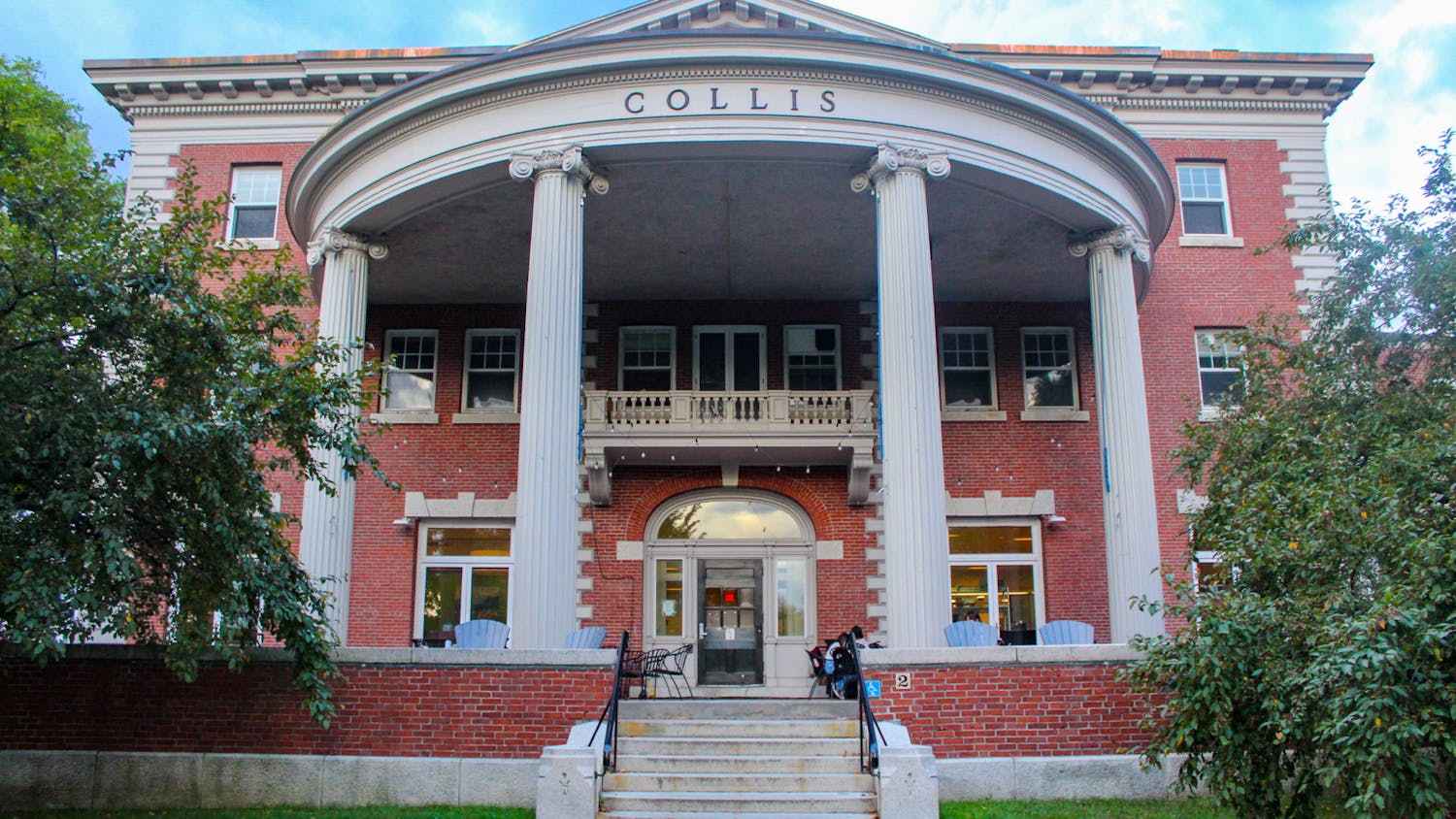French police and Nazi soldiers under Vichy rule rounded up over 75,000 Jews, the vast majority of whom would be systematically exterminated in the Holocaust.
Golsan's lecture focused on France's post-millenial preoccupation with the crimes of the Vichy regime. Through discussion of "Operation Spring Wind," the name given to the Jewish roundup of 1942, Golsan said that the French people acknowledged the Vichy regime's misdeeds but allowed a skewed interpretation of the past to dictate modern political decisions.
During the 1990s, the French term "le devoir de memoire," or "duty to memory," became a motto among the public. French citizens wanted to more thoroughly understand the Vichy regime's actions, and many advocated for the government to punish former leaders and build memorials to the Jewish victims.
Though Golsan said he admires the sentiment behind "duty to memory," he criticized the government's application of the motto in both international politics and the court system.
"While the proponents of duty to memory' were well-intentioned, it resulted in troubling distortions of present realities and past ones," Golsan said. "It resulted in an abuse of history and a corruption of memory of the Holocaust."
The first manifestation of "duty to memory" occurred during the Bosnian genocide of the 1990s, Golsan said. French politicians viewed the events to be in direct parallel with the Vichy regime's actions during World War II. By comparing Serbian President Slobodan Milosevic with Adolf Hitler, France responded in an overly aggressive manner, Golsan said. The "duty to memory" phrase was invoked in order to convince French leaders to stop genocide in the Balkans, but advocates falsely painted Serbia as the sole aggressor and called the genocide a "crime against humanity."
"It's dangerous to equate crimes of the past with present actions," Golsan said. "No matter how brutal Serbia's ethnic cleansing was, comparing it to the Holocaust undermines the memory of Holocaust victims by suggesting that the crimes against them were not unique."
Golsan also spoke about France's judicial system in which Vichy war criminals were tried and convicted. In 1998 and 1999, after an outcry from "duty to memory" movement advocates, the French government tried Maurice Papon for crimes against humanity. Papon, a civil servant during the Vichy regime, complied with Nazis during Operation Spring Wind and spent the rest of his career in government as Paris' prefect of police and a government minister. As the prefect of police, Papon ordered the brutal suppression of Algerian protestors, many of whom were beaten, killed and thrown in a river.
The French public compared the Algerian murders to the Holocaust, creating a dangerous change in the legal precedent for crimes against humanity in France, Golsan said.
France should not solely focus on anti-Semitism of the past, but should also strive to recognize its accomplishments, Golsan said.
English professor Barbara Will said Golsan's research affected her own work on the Vichy regime.
"One of the pleasures of being a scholar and academic is being able to meet people whose work has influenced your own," Will said. "Golsan's work has been a touchstone for me."
Golsan is the director of the Melbern Glasscock Center for Humanities Research at Texas A&M University and the author of "Vichy's Afterlife: History and Counterhistory in Postwar France" and "French Writers and the Politics of Complicity."




